
Contributed by Julia Kunin / Like many Americans, I have been watching online and reading about the war in Ukraine with shock and sadness. Finding Ukrainian Canadian artist Taras Polataiko speaking out on social media made it more real. Taras, whom I met in 2008 at Art Omi, is back in Ukraine to help his family and raise funds for Kyiv’s civilian defense soldiers. I reached out last week to see how he is doing. �A lot of people don�t realize that we actually have been at war for the last 8 years,” Taras told me. “The word ‘war’ was not used because the Russians presented their hybrid war as ‘a civil internal conflict.'” He told me they are slowly getting used to the situation. I’ll have an update in a few days.
Julia Kunin: How are you doing?
Taras Polataiko: Well we are kind of slowly getting used to it. It was worse in the beginning because we were more scared. Now it�s like a new normal.
JK: That�s really unbelievable.
TP: Yeah, we have started ignoring the sirens now because we figure it interrupts our work.
JK: I guess you do have to keep yourself calm.
TP: Oh yeah, that�s one thing for sure you have to do. What comes to mind is the British: Keep calm and carry on. But we have a new one, �Keep calm and help the army�.
JK. There is so much to say, but first I want to tell you that what you are doing is amazing. I have always admired your artwork, it�s very powerful, and it�s important that the world hear your voice.
TP: Thanks for thinking about me.
JK: Can you tell us where you are?
TP: It�s Monday March 7, 2022, at 22:04 military time in Ukraine. I�m in the city of Chernivtsi, its south west of Ukraine, pretty close to the Romanian border. It�s a NATO border, so it�s probably one of the relatively safer cities
JK: That�s good to know, well we worry anyway but I�m glad to hear that. So do you want to tell us what you are doing now and what inspired you to go back.
TP: I�ll tell you how it happened, because I didn�t think he [Putin] would do a full-scale invasion, even though the US administration was warning and warning, I started thinking that the Americans had learned from the Russians and just started calling their bluff. It just didn�t make sense to see how Putin could possibly occupy such a large country with that amount of soldiers that they had on the borders, slightly more than 200,000 troops. Me and my girlfriend Violetta, who is here, she�s an artist and a jeweler, we wanted to cut the winter blues and go to Vienna, to do a museum tour of Vienna. It was our last night there, and we had a flight at 9 a.m. or something. We went to sleep, it was late, and my brother calls from LA and wakes us up, and says �The motherfucker Is bombing Ukraine�
�What?�
�Yeah, Kyiv, Odessa, the whole of it, and there are paratroopers in Odessa.� No this is not real. The first reaction is that you go into shock because you know you are flying in a couple of hours. I said, let�s sit down. You know what it�s like before a flight, you�re a little bit nervous anyway, your first protection, psychology goes I�m already in the West, maybe we cancel our flight?
So it was like a one minute decision. We just cleaned the place which was weird right away, because you realize the scale of it, what just started, and you still have to clean and take the garbage out, and clean the AirBnB and be nice and civilized. it�s morning, beautiful, people are going to work and having morning coffee. I guess people didn�t know yet what was happening. That was probably one of the worst feelings of the last two weeks. It still continues because nobody is really helping us.
You see well dressed people and Vienna is one of the rich capitals of Europe. And nobody knows that you are flying into the war zone. We decided to take all of the remnants of food that we were going to leave in the fridge. We decided to take it because who knows what could happen, so our bags were slightly strange with all kinds of remnants of cheeses and things. As a result, we were examined as we passed through security. At the airport we heard one woman say, �Ah they are flying to Ukraine�.
All the direct flights from Vienna to Ukraine were cancelled, and lucky for us ours was to Romania, which is NATO territory. I actually thought of that before, because already flights were getting cancelled. Remember when the US was pulling its embassy and Lufthansa was cancelling, so I purposely did not buy a flight from Ukraine. Then we got to the border, the Romanian border.
JK: So you flew into Romania and crossed the border.
TP: Yes. We called a driver, but our driver cancelled so we had to get a taxi to get us to the border. Then we saw the first image of war: A line a few miles long, made up of people fleeing.
JK: that must have been intense.
TP: We were the only weirdos crossing this way, crossing back. But somehow you know it�s strange but all of a sudden it started feeling better. You know you are actually entering a territory where a bomb can land anytime or anything can happen because it�s unprotected by NATO, but it started feeling better because we felt like we were in the same boat with everybody else. Everybody knows and everybody is in the same trouble, and you share it. Because the worst feeling is of being alone thinking nobody cares. Oh yeah we feel so sorry but there is nothing we can do.
JK: That�s a horrible. There�s no way back here for us to understand. We try to understand. You�re there living it, in a community. Tell me how you are doing, and how you are helping.
TP: Once we got here, you think: �what do you do�. You prioritize quick . I figured I have to make sure I�m stable in this and I�ll be more stable when my parents are more secure. So we drove and bought enough supplies of food and water for us and our parents. Once I felt my parents were supplied with food for a couple of weeks, that was off of my mind. I told them what to do in case of a siren, and to stay calm. That was taken care of. We then went and donated blood. Then we helped the refugees, we collected pillows, blankets – stuff we could live without. There was already an organization helping the refugees so we took it there.
So what do we do next? And then at that point it was becoming clear that a lot of civilians are volunteering, like me, normal people from different professions. The Ukrainian army is much smaller than the Russian army so there was a call to volunteer, and thousands did.
The the next day I saw a heartbreaking picture of a civilian defense guy in Kyiv. He was given a gun but he was dressed like me in civilian clothes: no boots, no helmet. It�s heartbreaking. I should�ve been there. I look at it and I feel guilty. I feel sorry, it�s an awful feeling to see that. They�re brave people but I guess there were no vests for them because they were not prepared. So we decided that we will try to buy that stuff and fundraise. I started using my credit card buying vests, helmets, whatever they need.

In addition, both of Violetta�s brothers and her dad are fighting. It�s kind of personal. She�s pretty nervous all the time because they are there right now. The agreement is they will be in contact every day. Whenever you turn the news on and you know where they are, and it�s bad there, she gets really nervous. They are letting us know what is needed at this point. Tourniquets, blood stoppers called Israeli bandages, bullet proof vests, helmets and painkillers. The good thing is that Ukrainian pharmacies made painkillers available without prescriptions.
JK: Are you buying them in Poland or Ukraine?
TP: In the beginning it was possible to buy them here but in two days it was all gone. First of all everybody wants them and the logistics are disrupted. It�s eerie because you go to the grocery store and not everything is available. On the first day, the bread was gone.
People panicked and started buying bread and basic things like canned food. Now the supplies are being depleted in the warehouses. So now with each trip to the store, you see OK now, this is not available, the shelves are getting emptier. I hope that long promised humantarian aid from the west will arrive. We don�t see it yet.
And the guys who are defending Kiev, they don�t see it either. So basically with our effort we�re trying to fill that critical gap before the official western government aid arrives. I guess it takes long time for the bureaucratic machine to start rolling. I believe it will arrive, but we don�t see it. And the guys are dying right now, they are not waiting for the government to bring it. They�re telling us exactly what is needed and we are getting it. The logistics are: I�m using my credit card and ordering it online from Poland and UK. Now a lot of things are not available anymore in Poland (as Poland is right next to Ukraine). There are a lot of connections between Ukraine and Poland. It�s hard to find stuff in Poland now. Today we were buying stuff from the UK and it was getting delivered to my girlfriend�s mom�s school where she�s teaching in Poland. From there, her boyfriend is driving it to the Ukrainian border, and there a person we know is picking it up and taking it to Kyiv. That�s how it works. Logistics are changing all the time, because it is a dynamic situation so every day there are changes so we have to keep adjusting and adapting. Today we bought something from Bucharest, Romania, so that�s new for us. We spent the whole day trying to figure that out, who do we know in Bucharest who can pick it up because you can�t just normally ship to Ukraine anymore. You can�t Fedex. They don�t deliver to Ukraine. Everything has to be delivered by a person you know, because in this chaos, there is no guarantee that it�s going to get there.
It�s wonderful to think about how Ukrainian society has reacted to the war. It really makes me proud. A lot of people reacted the same way we did. There�s already special groups organized online. �We need this, we know who to talk to, online groups, anybody driving to LVIV anybody driving from Kiev to Lviv. We have meds, they have vests….� It�s kind of like a beehive, a mode of self organization.
JK: How are your parents doing?
TP: they are doing amazingly well for their age. They�re pretty old. My father�s almost 90 and it brings up memories of the second world war for them because they were children and all of a sudden stories start coming out. But they�re more calm maybe because they went through the war as kids, they said: �I told you,” my mom starts telling me. �That bomb is different from that other bomb, that one flies like that.” They are ok. I�m glad, but I was worried because their blood pressure is unstable. I was afraid this was going to be hard on them but I�m glad they are ok so far.

Our talk continued about the war, Putin and the threat to democracy.
TP: I lived my whole adult life in Canada. People take it for granted how great it is to be part of the West, part of NATO. You take your safety and security for granted. If the war happens it happens somewhere over there, in the middle east or whenever.
JK: the whole world has woken up, at least I hope so.
TP: I see people rallying, but it�s weird the last statistics I read, like almost 80 percent of the American people are in support of a no-fly zone over Ukraine but the government is ignoring it. It�s kind of strange.
JK: What we�re hearing is that they want to avoid a bigger conflict into western Europe. That is the line, a fear of nuclear war.
TP: That is another appeasement. I understand by now, I was really hoping that the west would do the no-fly zone, because, yes, there is a risk but it is another bluff by Putin. Because Putin and his oligarchs, and the Russian nouveau riches steal money from the Russian economy and buy yachts and palaces in the west. They don�t keep their money in Russia. So why would they want to bomb all that, their children.
Western intelligence must be aware of the old Russian game that goes back to the cold war: �I�m so strong and I am unhinged and I can get drunk and I don�t know what I�m going to do and I have this red button.� Putin is selling fear, all the time, but he�s always playing with weak cards, if you follow that. Most people don’t because why would you? But of course I do, because I�m from Ukraine. My parents are here. I�m Canadian but I�m also Ukrainian. I have to, because I need to understand and follow this whole thing. Russia is 1.2 percent of the world�s economy. Economically it�s smaller than Spain, and it�s been able to get away with every shitty thing. Basically it�s selling fear and getting ahead of the west every time. Because the west would not call his bluff. So this is the first time that his f..ing bluff was called. Ukraine was the first to call his bluff about their huge scary unbeatable army. We basically have nothing to lose. It�s survival. it�s existence.
JK: I am in awe of the Ukrainian people. Not just Zelensky but every human being who is fighting for your country. Really you are fighting for democracy
TP: Democracy is fragile, it�s easy to corrupt, it�s free, it�s not as centralized as tyranny which is a completely vertical power which his controlled. It�s easy to exploit democracy. It reminds people that democracy has to be defended.
Zelensky, has been compared to Churchill and that�s very true, if it wasn�t for Churchill, no one would have wanted to stop Hitler. That�s why Churchill is a hero, and he is probably the most important person of the 20th century. It�s not just Zelensky though, it�s the Ukrainian people. He represents the people and he gets his strength from the people. It�s our resolve to fight that gives him the confidence to be brave. I know he�s under threat now, the Russians are hunting for him. It would be easy for him to flee but he didn�t. The US offered to evacuate him and I think Zelensky�s answer will go down in history like Churchill�s �we�ll fight on the beaches and we�ll never surrender� from his 1939 speech. Zelensky�s famous answer to the US�s offer was “The fight is here; I need ammunition, not a ride.”
Another thing I wanted to talk about, What to do after the war. There has to be something like a de-Nazification of the Putin regime, the de- Putinization. We, the cultural workers are responsible for doing it in the field of culture. Remember how it was in 1945 in Germany, there was de-Nazification for ten years. Every citizen of Germany was made to take responsibility for their crimes. They filtered and screened them, they had to explain what they did at this time and that time during the war. The Russians have to take responsibility for the war criimes of their regime, the same way that the Germans did. Otherwise Russian fascism will regroup and resurface again and again. We have to stop it and make sure it never happens again.
Unlike Hitler, Putin�s regime is not likely to capitulate because it has nukes. But if Russian artists and intellectuals want to reap the benefits of a civilizes world, they�ll have to answer questions like: What was your reaction to the annexation of Crimea? How much money did you get from the regime? To what degree were you directly or indirectly affiliated with Putin�s regime? and so on. It just has to be done in order to deconstruct Putin�s fascist monstrosity called �The Russian World,” once and for all.
JK: Thanks Taras for sharing your experience and thoughts.


If you would like to contact Taras Polataikos and help him buy medicines and protective equipment for the soldiers in Ukraine, please message him directly on Facebook.
About the author: Brooklyn artist Julia Kunin was a Fulbright Scholar to Hungary in 2013 and she received a 2010 Trust for Mutual Understanding Grant to Hungary. She has received a Pollock-Krasner Foundation Grant and had a residency at Art Omi. Recent solo shows include “Rainbow Dream Machine” at McClain Gallery, Houston (2021-2022) and “Mechanical Ballet” at Kate Werble (2021-2022).
Related posts:
Wartime and time warps in Obayashi�s Labyrinth of Cinema
Art and Film: War and art�s uneasy survival
The Great War and Modernism

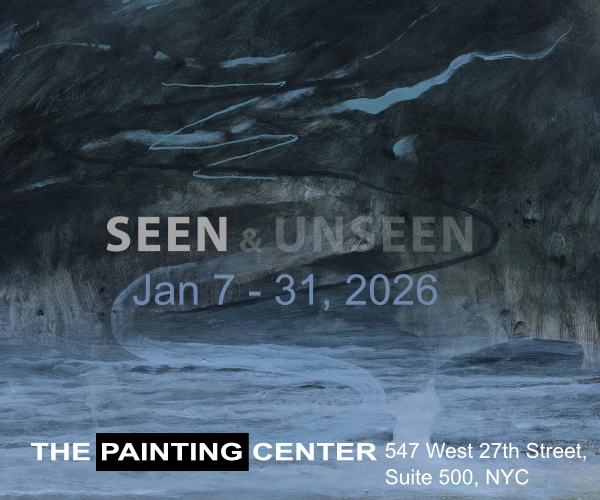
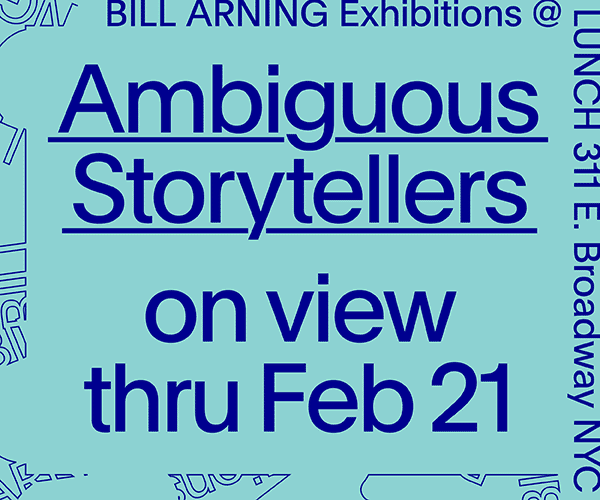

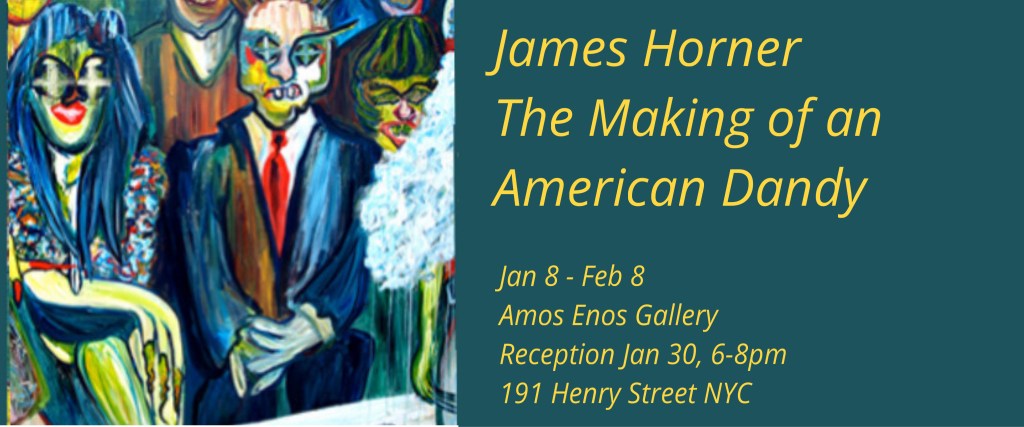
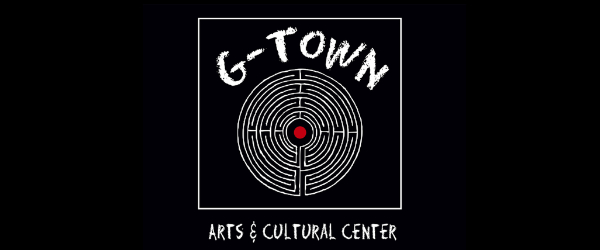












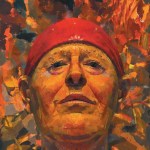



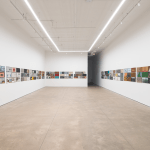
Such a powerful & moving interview. I�ll contact & support Taras. Thank you Julia & 2 Coats
This telling is remarkable. Thank you.
I feel more connected to this unspeakable war after reading your interview. I hope Taras, Violetta, their families and friends will be safe. Thanks Julia.